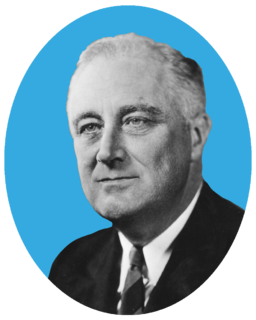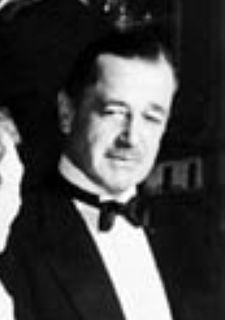
Byrdstown is a town in Pickett County, Tennessee, United States. The population was 803 at the 2010 census. It is the county seat of Pickett County.

Cordell Hull was an American politician from Tennessee best known as the longest-serving U.S. Secretary of State, holding the position for 11 years (1933–1944) in the administration of President Franklin Delano Roosevelt during most of World War II. Hull received the Nobel Peace Prize in 1945 for his role in establishing the United Nations, and was referred to by President Roosevelt as the "Father of the United Nations".

Nathan Lynn Bachman was a United States Senator from Tennessee from 1933 until his death. He was a member of the Democratic Party.

The Worldwar series is the fan name given to a series of alternate history science fiction novels by Harry Turtledove. Its premise is an alien invasion of Earth during World War II, and includes Turtledove's Worldwar tetralogy; as well as the Colonization trilogy; and the novel Homeward Bound. The series' time-span ranges from 1942–2031. The early series was nominated for a Sidewise Award for Alternate History in 1996.
The Office of Administrator of Export Control was established in the United States by Presidential Proclamation 2413, July 2, 1940, to administer export licensing provisions of the act of July 2, 1940. Brigadier General Russell Lamont Maxwell, United States Army, headed up this military entity. It was abolished by Presidential Executive Order 8900, September 15, 1941, and its functions were transferred to the Economic Defense Board, which had been established by Presidential Executive Order 8839, July 30, 1941, to develop policies and programs to strengthen U.S. international economic relations. The name was changed to Board of Economic Warfare by Presidential Executive Order 8982, December 17, 1941. In turn, it was abolished by Executive Order 9361, July 15, 1943, and the functions were transferred to the newly created Office of Economic Warfare, OEM, which also assumed control of U.S. Commercial Company, Rubber Development Corporation, Petroleum Reserves Corporation, and Export-Import Bank of Washington from the Reconstruction Finance Corporation. Consolidated into the Foreign Economic Administration, 1943.
The Advisory Committee on Postwar Foreign Policy was a secretive committee created on February 12, 1942, to prepare recommendations for President Franklin D. Roosevelt on post World War II foreign policy. Predecessors included the similar Advisory Committee on Problems of Foreign Relations and the Division of Special Research. It was created by Secretary of State Cordell Hull at the suggestion of his assistant Leo Pasvolsky and Norman Davis of the Council on Foreign Relations. The committee appointed subcommittees on political problems, economic reconstruction, territorial matters, legal questions and the creation of an international organization, all under the direction of Pasvolsky. After four sessions, the main committee disbanded, Hull preferring to rely on the smaller subcommittees.
Green Haywood Hackworth was an American jurist who served as the first U.S. judge on the International Court of Justice, as President of the International Court of Justice, as the longest running Legal Adviser to the US Department of State and as a member of Secretary of State Cordell Hull's inner circle of advisers. Hackworth was instrumental in the development of plans for the post World War II world order and was a key member of the U.S. delegation to the Dumbarton Oaks Conference (1944). He served as a member of the Advisory Committee on Postwar Foreign Policy (1942), as a member of Post War Programs Committee (1944) and as Chairman of the Committee of Jurists that drafted the initial statutes for the International Court of Justice (1945). Hackworth also represented the U.S. Delegation on Committee IV at the United Nations Conference on International Organization where the articles in the United Nations Charter pertaining to the International Court of Justice were finalized.

The 1940 Democratic National Convention was held at the Chicago Stadium in Chicago, Illinois from July 15 to July 18, 1940. The convention resulted in the nomination of President Franklin D. Roosevelt for an unprecedented third term. Secretary of Agriculture Henry A. Wallace from Iowa was nominated for Vice President.
The 1928 Democratic National Convention was held at Sam Houston Hall in Houston, Texas, June 26–28, 1928. The convention resulted in the nomination of Governor Alfred E. Smith of New York for President and Senator Joseph T. Robinson of Arkansas for Vice President.
Cordell Hull Lake is a lake in the Cumberland River in north-central Tennessee, about forty miles east of Nashville, in the vicinity of Carthage. It covers approximately 12,000 acres (49 km2).

Cordell Hull Birthplace State Park is a state park in Pickett County, Tennessee, in the southeastern United States. Cordell Hull (1871–1955) served as U.S. Secretary of State under President Franklin Roosevelt and played a pivotal role in the creation of the United Nations in the mid-1940s.
Cordell Hull Reagon was an American singer and activist. He was the founding member of The Freedom Singers of the Student Nonviolent Coordinating Committee (SNCC) and a leader of the Albany Movement during the Civil Rights Movement.

Earl Anthony Wayne is an American diplomat. Formerly Assistant Secretary of State for Economic and Business Affairs, Ambassador to Argentina and Deputy Ambassador to Afghanistan, Wayne served nearly four years as Ambassador to Mexico. He was nominated by President Obama and confirmed by the Senate in August, 2011. He departed Mexico City for Washington July 31, 2015 and retired from the State Department on September 30, 2015. He is currently working with the Woodrow Wilson International Center for Scholars, the Atlantic Council, the Center for Strategic and International Studies, HSBC banking corporation, the American Foreign Service Association, and as an independent consultant. Wayne attained the highest rank in the U.S. diplomatic service: Career Ambassador.

Ray Atherton was a United States diplomat who served as the first United States Ambassador to Canada (1943–48).

Hull Glacier is a glacier, about 35 nautical miles (65 km) long, flowing northwest between Mount Giles and Mount Gray into Hull Bay, in Marie Byrd Land, Antarctica. It was discovered by the United States Antarctic Service (1939–41) and named for U.S. Secretary of State Cordell Hull.

The Cordell Hull State Office Building is a historic building in Nashville, Tennessee.

The Cordell Hull Bridge is a bridge over the Cumberland River in the U.S. state of Tennessee that connects the towns of Carthage and South Carthage.













